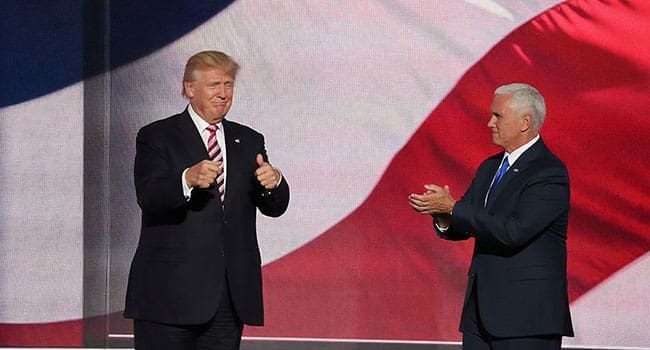 For a political candidate, the most important thing to have in an election is a message. Donald Trump doesn’t have one.
For a political candidate, the most important thing to have in an election is a message. Donald Trump doesn’t have one.
In 2016, he did. As dishonest as it was, “Make America Great Again” was a brilliant political slogan. It suggested, without explicitly saying it, that America was no longer what it had been.
It implied that change – technological, cultural, economic, societal – had destroyed what previously made American “great.” To the mainly older, less-educated white men who support him the most, Make America Great Again (MAGA) was their clarion call, their cri de coeur.
MAGA was the expert distillation of the false notion that America had fallen – to feminism, refugees and immigrants, to coastal elites and Wall Street, to the Deep State, to billionaire Silicon Valley computer geeks. Make America Great Again was, for Republican presidential candidate Trump, perfect.
He had another message, too. It wasn’t seen on red truckers’ caps but it was no less potent than MAGA. It was ubiquitous. It was the notion that Trump would go to Washington and blow up government. He would be the destroyer.
That’s what middle America, former president Richard Nixon’s silent majority, wanted. That, to them, was what would make America great again.
For Democratic Party 2016 candidate Hillary Clinton, the consummate Washington insider – who believed in government and would likely grow government if given the chance – Trump’s dual messages were politically deadly. They were lethal because Trump had a message and Clinton didn’t.
Even if you were a voter who didn’t like Trump, you at least knew what he stood for. With Clinton – who I worked for in three states – you just didn’t. It’s the main reason she lost.
She, the establishment candidate, didn’t have what consultants call “the ballot question.” He, the challenger, did.
Four long, gruelling, grinding years of Trump’s presidency later, the tables have turned. It’s Trump who doesn’t have a message. It’s Joe Biden who does.
Oh, sure, Trump has cast about looking for a message, looking for something to attack. That’s what he does.
He’s been like a monkey with a machine-gun, firing tweets at anything that could rile up his base. It’s worked before. Could it work again?
So he’s called COVID-19 “a hoax” conjured up by the media and the Democratic Party, but that hasn’t worked.
He’s thrown mountains of mud at Biden – even earning himself an impeachment for doing so. But the Democratic presidential nominee remains unflappable – and unassailable in the polls.
Trump has attacked protesters in various cities, even sending in armed federal agents to defend his version of “law and order.”
But the white working class remain mostly preoccupied with joblessness and COVID-19. And understandably so.
He’s tried to whip up anti-Chinese sentiment – but his previous slavish devotion to China’s dictatorship has stepped all over his message.
He’s attacked Democratic governors and mayors – but there’s more of both than ever.
So what does Trump have left?
He can’t say he wants to make America great again – because that implies that, when he ran things, he didn’t. And he can’t suggest that he’s against government, because now he runs the biggest government there is: the government of the United States of America.
Trump has no message. And with the first presidential debate a few days away – and the vote just a few weeks away – he’s running out of time to find one.
Biden, meanwhile, doesn’t have a pithy slogan like Make America Great Again. He doesn’t need one.
By simply being decent and sane – by simply maintaining a pulse and being Joe Biden, in other words – he sends the best message of all. It’s the message that will win, too.
His message is that he isn’t Donald Trump.
Warren Kinsella is a Canadian journalist, political adviser and commentator.
Warren is a Troy Media contributor. Why aren’t you?
The views, opinions and positions expressed by columnists and contributors are the author’s alone. They do not inherently or expressly reflect the views, opinions and/or positions of our publication.


